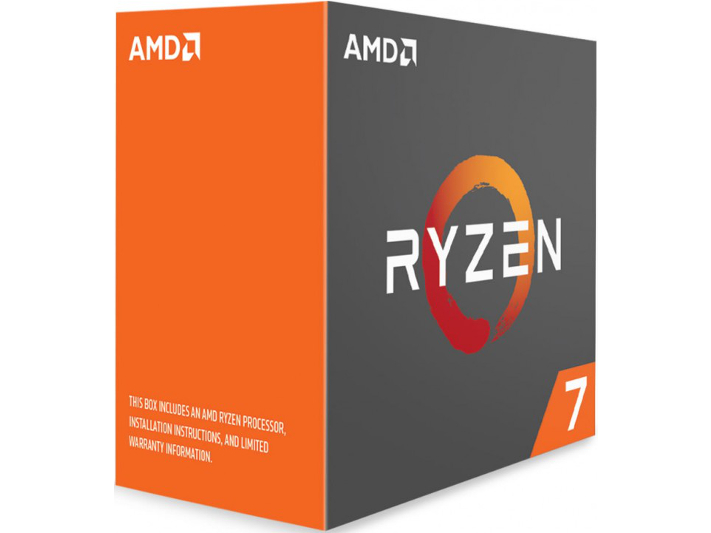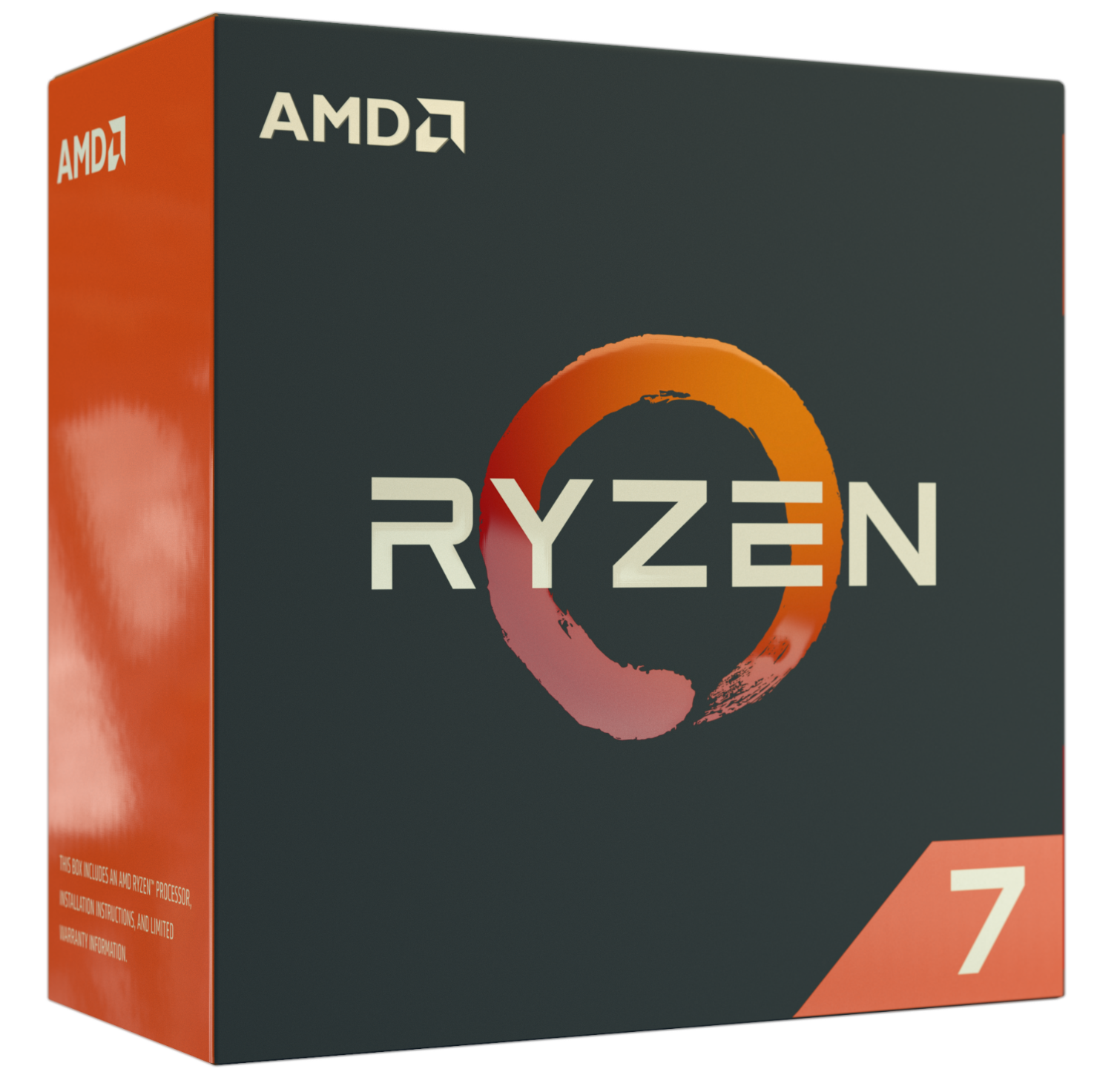Early Verdict
The Ryzen 7 1700X offers a simple path to overclocked performance that matches its more expensive 1800X counterpart. The 1700X lags behind Intel's faster quad-cores in many gaming applications, but offers diverse capabilities in heavy workloads.
Pros
- +
Unlocked ratio multiplier
- +
Low cost eight-core
- +
Low TDP, Multi-threaded application performance
Cons
- -
Lower gaming performance than Intel processors
- -
Poorly optimized software ecosystem
Why you can trust Tom's Hardware
Introduction
AMD is trying to shake up the market with shockingly low prices for its 8C/16T Ryzen 7 line-up. And while these CPUs don't dominate every workload, there is hope the company's newest architecture is compelling across enough segments to put much-needed pressure on Intel.
One component of AMD's strategy involves attractive pricing. The flagship Ryzen 7 1800X grabbed attention for its ability to battle Intel's Broadwell-E-based Core i7-6900K for $550 less (and with the same number of execution cores). We agree that the 1800X is compelling in threaded productivity and content creation apps. But we think you'll derive more value out from the cheaper Ryzen 7 1700X ($400) and 1700 ($330). The former goes up against Intel's $450 Core i7-6800K, while the latter undercuts Core i7-7700K. In both cases, the AMD chips wield more processing resources than the Intel competition.
Of course, that doesn't mean AMD runs the table in benchmarks. In our AMD Ryzen 7 1800X CPU Review, we saw the new chip offer a solid price-to-performance ratio for productivity and workstation-class workloads. Unfortunately, we couldn’t say the same about gaming. We followed up with testing in a wider range of popular games, and while Ryzen delivered playable performance in most titles, cheaper Core i7-7700K and Core i5-7600K chips were typically better.
Zen, In-Depth
From a high level, various enhancements over Zen’s predecessors, such as Simultaneous Multi-Threading (SMT), a new micro-op cache, better branch prediction, a wider instruction scheduler window, and faster caches contribute to the architecture's increased IPC throughput. Check out Everything Zen: AMD Presents New Microarchitecture At HotChips for more.
AMD claims that the gaming performance issues stem from how applications interact with the intricacies of its new architecture. The company expects a wave of updates from various developers that will eventually remedy this (though so far only two devs have publicly committed to optimizing their engines for the new processors). Until something concrete happens, though, we don't see much value in gaming-specific Ryzen 7 1800X builds.
Might the Ryzen 7 1700X cast a more favorable light on gaming? After all, it costs $100 less, carries over the eight-core configuration with 16MB of L3 cache, and continues to offer an unlocked ratio multiplier.
Get Tom's Hardware's best news and in-depth reviews, straight to your inbox.



The unlocked multiplier is especially interesting, given the similarities up and down the Ryzen 7 family. Given a similar 95W TDP between the $500 1800X and $400 1700X, then, the only technical differences between them are their base, two-core Precision Boost, and XFR clock rates. Out of the box, 1800X enjoys a 200 MHz advantage down low and up top. But we've heard claims that 1700X hits a similar ceiling as 1800X when it comes to overclocking.
Right out of the gate, Ryzen 7 1700X looks like a smarter buy than 1800X. But is it smart enough to maintain AMD's strong position in well-threaded desktop apps and make up some value ground in gaming, where the architecture isn't as strong?
MORE: Best CPUs
MORE: Intel & AMD Processor Hierarchy With CPU Comparisons
MORE: Everything Zen: AMD Presents New Microarchitecture At HotChips
MORE: Intel Kaby Lake Core i7-7700K, i7-7700, i5-7600K, i5-7600 Review
MORE: Broadwell-E: Intel Core i7-6950X, 6900K, 6850K & 6800K Review

Paul Alcorn is the Editor-in-Chief for Tom's Hardware US. He also writes news and reviews on CPUs, storage, and enterprise hardware.
-
Ergosum Whoever runs PR at AMD needs to reevaluate their methods. The 1800's and 1700's are very solid products, but for some reason were shadow marketed--letting rumor define the target application sets.Reply
AMD should have had a strong positive campaign on where these chips do well. Specific. Timely. They would have gathered some gamers who wanted to brag about handbrake performance or some-such. Instead they let the market build fairy castles in the sky about gaming-specific performance, and so (again) lost a great deal of goodwill and trust. -
hannibal The problem is that the market made those cloud castless, not the AMD... it is hard to AMD to say users not to speculate. Every information that AMD did give out was confirming that Ryzen was going to be really good multicore performer, and we all know that very few game use more that teo or three threats, so the extra 4-6 cores that Ryzen has normally Are useless I. The games, so any Intel 2-4 core prosessor wa going to better in the games if They would run in higher freguences that Ryzen and AMD very clearly tell us that 3.8 was the very near the top of the prosessor speed.Reply
If and when games start supporting 8 cores the 1700 is super good perfomer in the games too, but if and most propably because the situation stays the same. 2-4 more powerfull cores is always better in games that having more of them.
It seems that people now know games really poorly if They expected the Ryzen has any chance in those.
Ryzen 1500 (four cores) is as fast in the games than 1800X is and 1500 is much cheaper.
http://www.techspot.com/review/1360-amd-ryzen-5-1600x-1500x-gaming/ -
TechyInAZ Good review. Can't wait until software devs and motherboard manufactuer's get better optimized softwares and BIOS's so Ryzen isn't constantly dealing with this problem anymore.Reply -
dstarr3 Reply19481950 said:Conclusion: Ryzen still sucks.
It's not that Ryzen sucks, it's that Ryzen was meant to compete with Xeon CPUs, which it does very well. Gamers should look elsewhere, but for some reason, gamers are the ones that got most excited about these CPUs. -
elbert I wouldn't suggest either a 1070 nor the 1080 on 1080p. Probably should have tested with a more normal 1060 6GB at that resolution. Those willing to pay high prices for both the CPU and GPU should be running at 1440p. The game benchmarks are unnaturally skewed.Reply
The biggest thing to look at in the game benchmarks is how unutilized the Ryzen CPU's are. We will probably see the Ryzen R5 quads running the same FPS for a few hundered less then all but the old 8350 on April the 11th.
Also it looks like AMD is gearing up a new socket with 8, 12, and 16 cores on an X390 motherboard. At the current pricing the 16 core could be lower priced than Intel's over priced 6900 8 core. -
Achaios ?ll this talk about games supporting more than 4 cores is really a COMPLETE WASTE OF TIME.Reply
46.19% of Steam Gamers own 2-Core CPU's and 47.74% of Steam Gamers own 4 Core CPUs. No Game Studio is going to waste resources and money on optimizing games for more than 4 cores in the foreseeable future, if ever.
According to the same survey, only 0.24% of gamers own octacore CPU's. A little less than this is the presence of AMD Ryzen CPU's in the gaming market. Almost nonexistent.
I wish I was trolling. -
Oranthal Why did you only test 1080p performance? Most people who would consider these CPUs run an RX-480 or greater GPU if they are gaming ($300+ is still the premium market). Other reviews show the gaps shrinking or disappearing with greater resolutions as the bottlenecks are at the GPU where most die-hard review reading gamers will actually be limited.Reply -
Oranthal Reply19482020 said:I wouldn't suggest either a 1070 nor the 1080 on 1080p. Probably should have tested with a more normal 1060 6GB at that resolution. Those willing to pay high prices for both the CPU and GPU should be running at 1440p. The game benchmarks are unnaturally skewed.
The biggest thing to look at in the game benchmarks is how unutilized the Ryzen CPU's are. We will probably see the Ryzen R5 quads running the same FPS for a few hundered less then all but the old 8350 on April the 11th.
Also it looks like AMD is gearing up a new socket with 8, 12, and 16 cores on an X390 motherboard. At the current pricing the 16 core could be lower priced than Intel's over priced 6900 8 core.
100% spot on. I would of skipped my comment had I seen this when I started writing it.
